10 Scents That Keep Snakes Away, Experts Say

Keeping snakes off your property and out of your home is serious business. Tidying your lawn, eliminating rodent problems, and ensuring you’re not giving any reptiles easy entry cracks in your foundation are all common snake-proofing measures. But if you’re looking to go the extra mile, you can also use the power of scent. So, what smells do snakes hate?
“While snakes don’t have a traditional sense of smell like mammals, they do detect chemicals in the environment through a process called chemoreception,” explains A.H. David, a snake expert and founder of Pest Control Weekly. “They use their tongues to sample particles in the air, which they then analyze with an organ in their mouth called Jacobson’s organ (also known as the vomeronasal organ).”
Of course, it’s important to remember that no one wants to invest in literal snake oil: Experts warn that many items sold at hardware stores marketed as “snake repellent” are rarely effective. Nevertheless, there are still some natural options that are probably already lying around your house that could yield impressive results. Read on to find out about the smells that snakes hate.
RELATED: 12 Plants That Will Keep Snakes Out of Your Yard, Pest Experts Say.
1
Vinegar
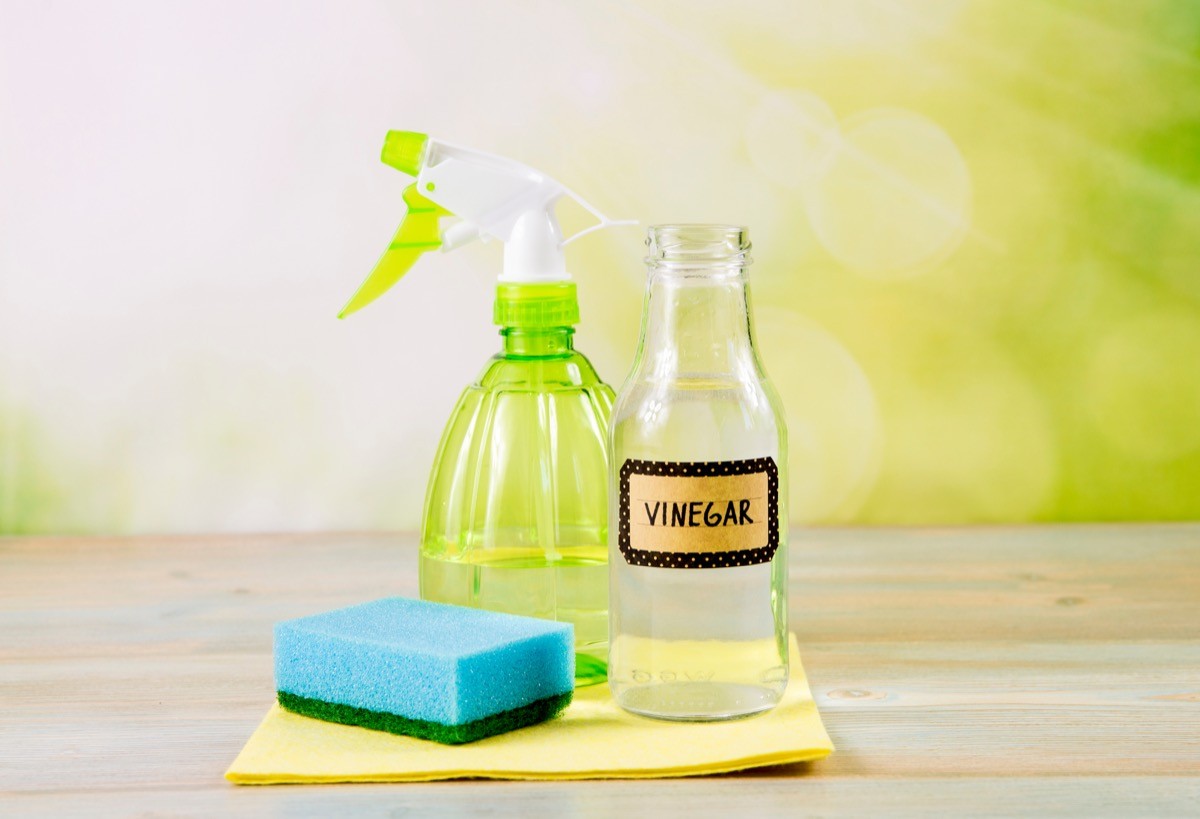
Not only does vinegar do double duty as a fantastic natural cleaner, but experts say it also works as a snake deterrent.
“When it comes to repelling snakes, vinegar is the best option. There are several reasons for this, but the most important one is that vinegar is an acidic substance,” explains Jennifer Mecham, a snake expert and writer for Reptiles Blog. “Snakes are very sensitive to acidic substances, and they will avoid anything that is even slightly acidic. Pouring it on the ground can sometimes make them avoid slithering over it.”
2
Citrus
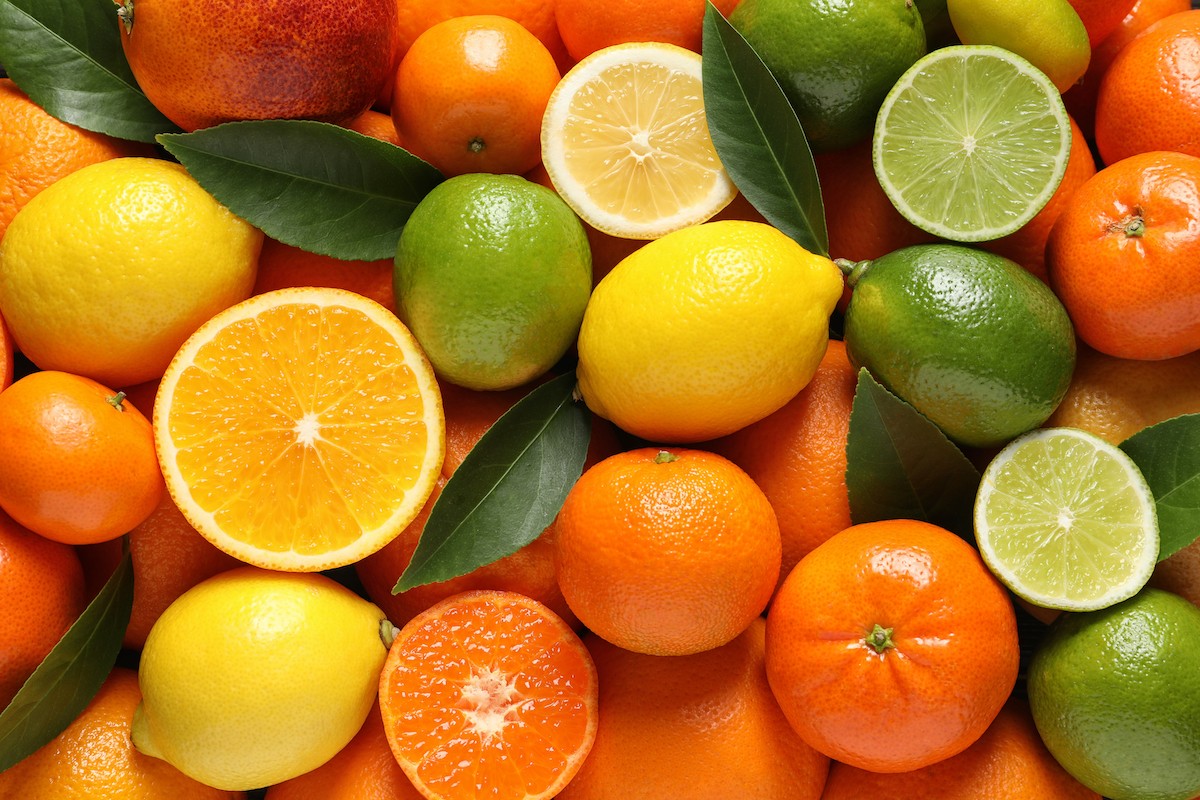
Speaking of snakes hating the smell of acidic substances, what fits this bill more than citrus fruits?
“One of the most commonly used snake-repelling scents is citrus,” says Mecham. “Citrus fruits like lemons, oranges, and grapefruits contain a chemical called limonene, which is a natural snake repellent. Just place a few slices of citrus fruit around your home, or even rub the peel on the outside of your door and windows.”
RELATED: If You Smell This at Home, You May Have a Venomous Snake, Experts Say.
3
Cinnamon and clove
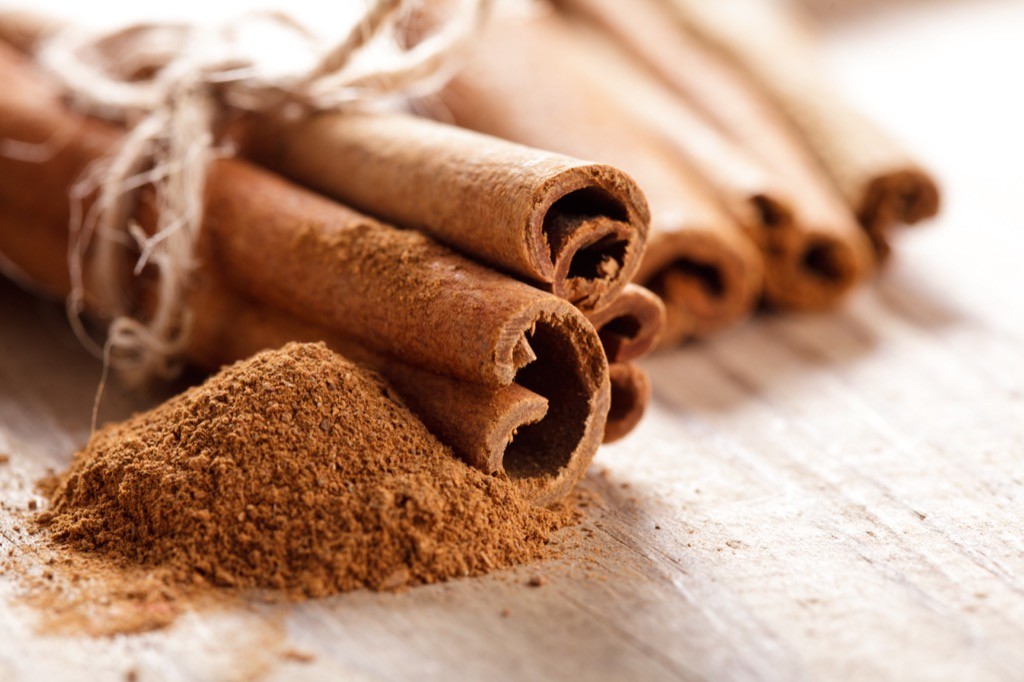
For humans, the smell of fresh cinnamon or clove is usually a sign that a delicious baked good is on its way. But according to experts, snakes have the opposite reaction.
“The truth is, snakes have a strong sense of smell, which they use to find accessible food sources,” explains Sholom Rosenbloom, the owner of Rosenbloom Pest Control. “You can take advantage of this trait by using scents they dislike, such as cinnamon and clove oil. These are the only scents recommended by the Animal and Plant Health Inspection Service to repel snakes.”
“Studies have been done on the brown tree snake, and it’s been shown that cinnamon oil and clove oil are effective at repelling this species,” he adds. “But if you plan to use cinnamon or clove oil to repel snakes, just use it in an area that cannot be accessed by pets.”
4
Mothballs
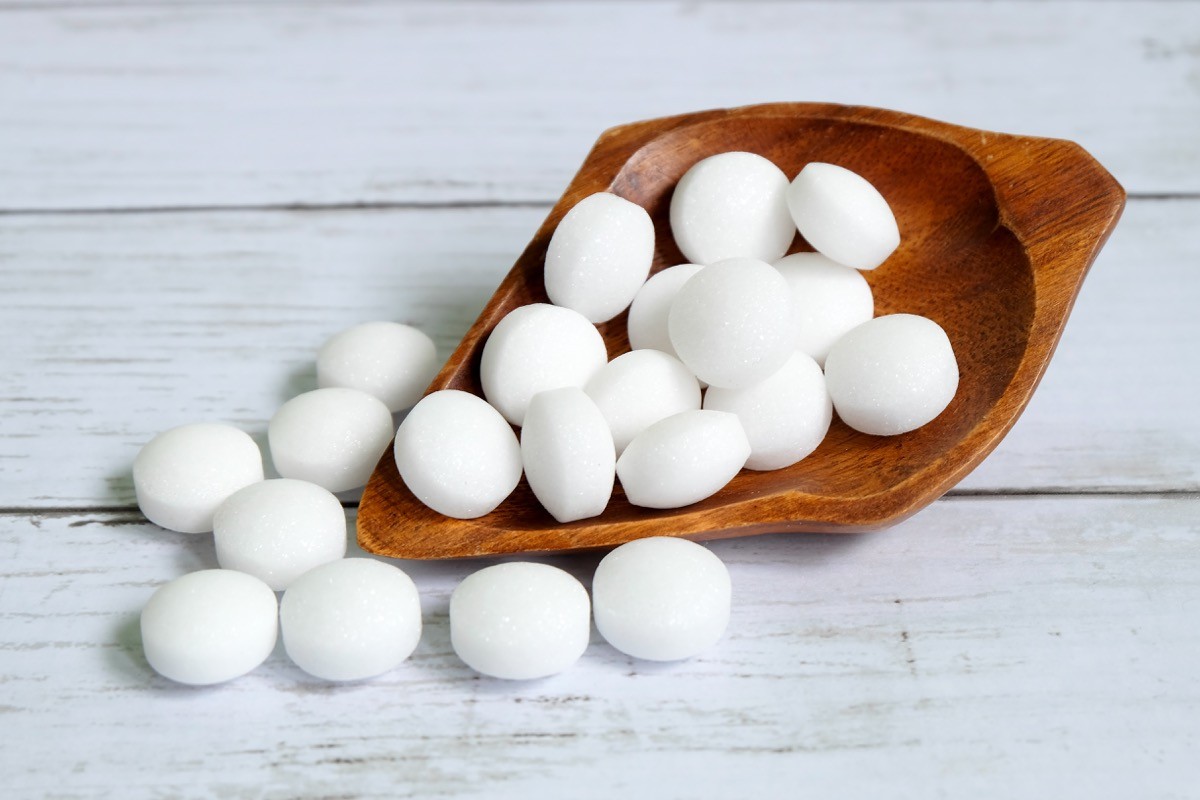
Anyone who’s had to protect their precious wardrobe from a moth infestation knows how effective mothballs can be. But it’s not just the flying pests who have a problem with the unmistakable smell of those pellets.
“Naphthalene—or the chemical in mothballs—has shown some repellent tendencies for snakes,” Roger Dickens, a wildlife technical services manager with Ehrlich Pest Control, tells Best Life. “It does vaporize and dissipate very quickly, so regular reapplications are needed.”
However, Georgina Ushi Phillips, DVM, advising veterinarian and writer for The Reptile Room, says to exercise caution when handling naphthalene, “as it can be toxic to humans and pets if ingested.” She also notes that this is the main ingredient in many snake-repellent products like Snake-away.
RELATED: 4 Scents That Attract Snakes to Your Yard, Experts Say.
5
Garlic
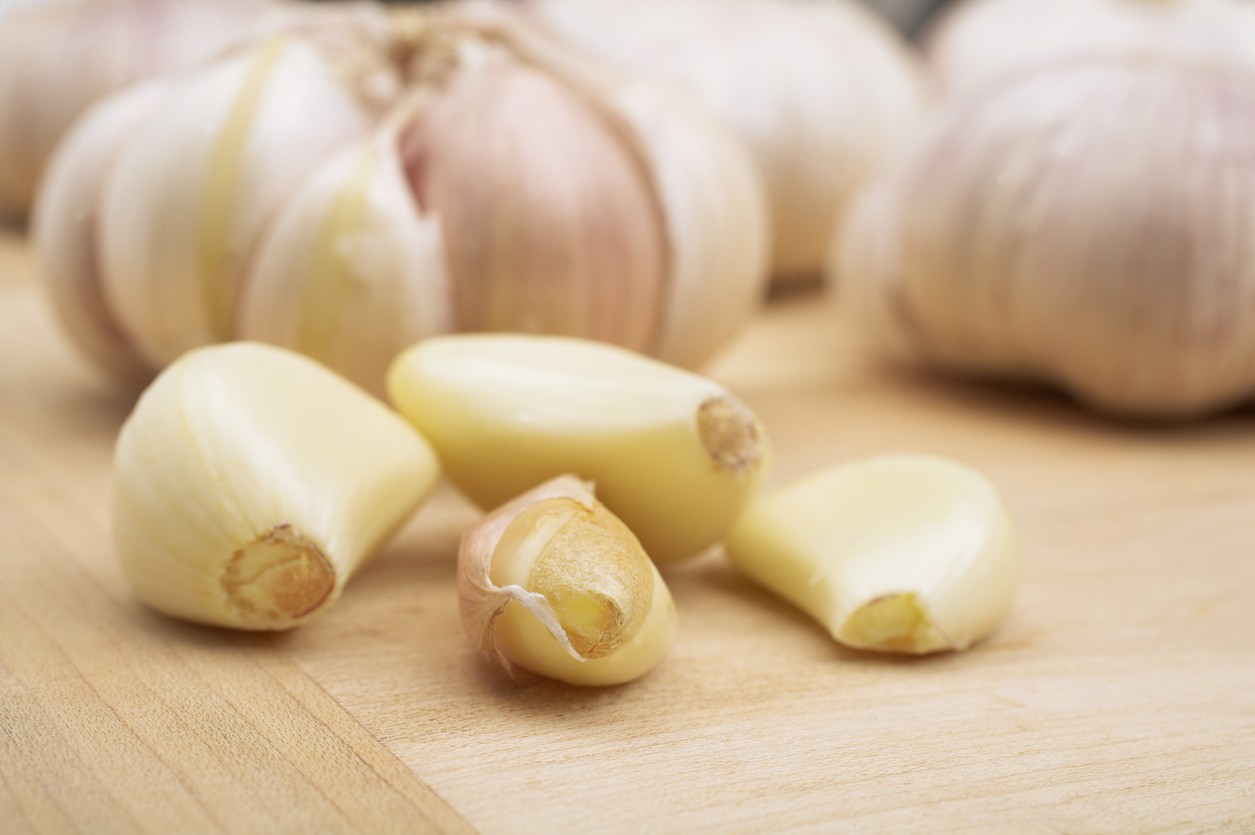
Some people see garlic as a key ingredient in the kitchen. Others see it more as a lifestyle. But whatever your level of passion is for the essential allium, it’s certainly higher than what a snake thinks of it.
“Garlic is a natural snake repellent because snakes don’t like the smell of it,” says Mecham. “But what few people realize is that it’s also good at keeping them away because it is a natural insecticide.”
“It will kill any insects in the area, including the insects that snakes eat,” she explains. “This will make your property less attractive to snakes and make it less likely for them to find food.”
Phillips suggests crushing garlic cloves and spreading them around the perimeter of your property or garden.
6
Marigolds
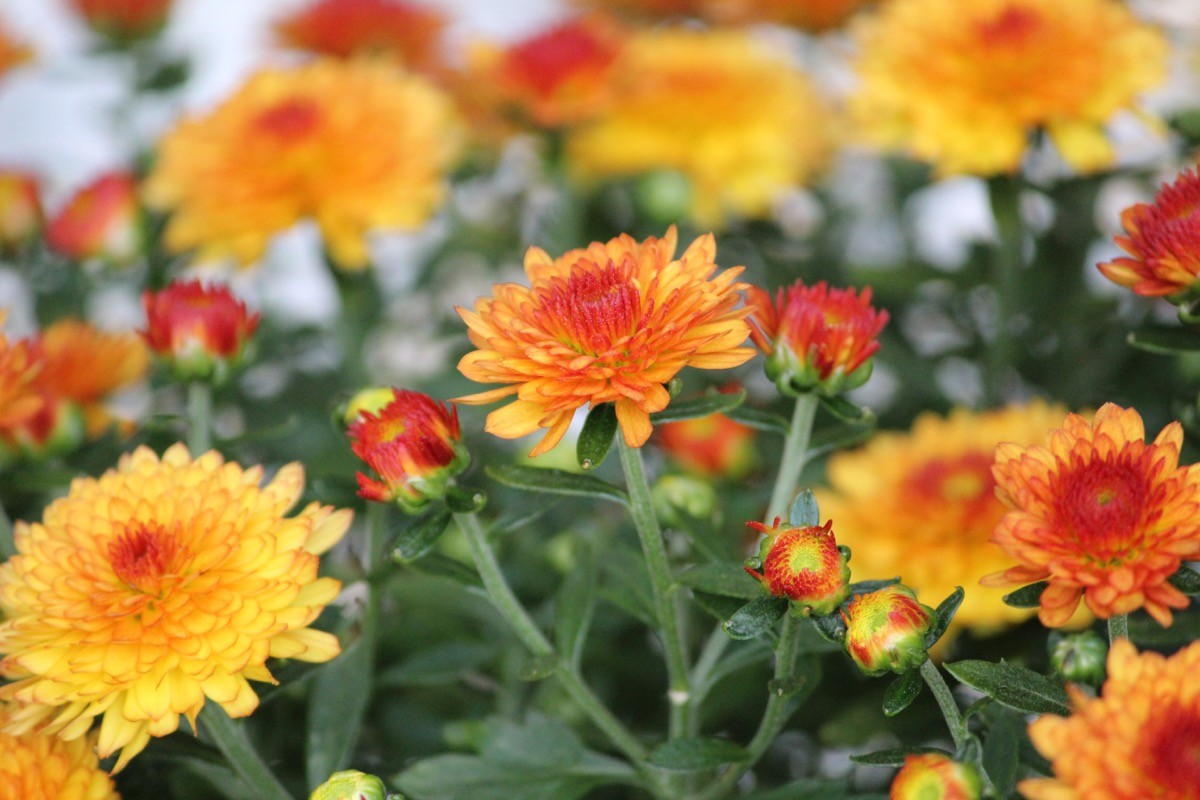
Marigolds are a very well-known insect repellent, but the flower’s strong scent turns away snakes, too.
“Marigolds release alpha-terthienyl, which most snakes find very unpleasant,” explains Phillips. “Consider planting marigolds around any entrances to your home or your yard to keep snakes away from key areas.”
According to the New York Botanical Garden, the signet marigold (Tagetes tenuifolia) has a “sweet lemony fragrance” that’s particularly off-putting to snakes. They do note, however, that this smell may also be too strong for humans; if that’s the case, they recommend the “gem series” of marigolds, which “has an inviting fragrance.”
RELATED: 10 Things in Your Yard That Are Attracting Snakes to Your Home.
7
Peppermint oil
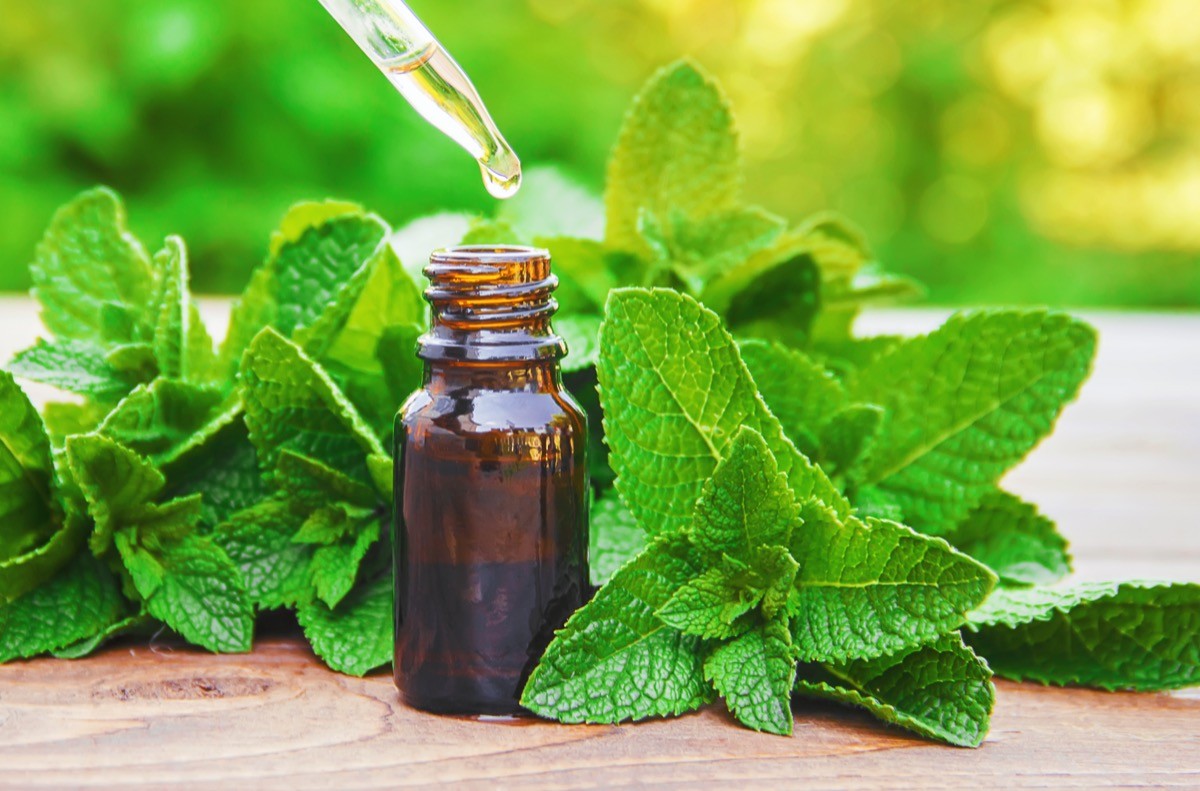
Essential oils are an easy way to introduce a little aromatherapy to your space. But while you might find them relaxing, one oil, in particular, can help keep snakes at bay.
“Peppermint oil is an effective natural snake repellent. It works by masking the scents they use to navigate and hunt, making it difficult for them to find prey,” explains Mecham. “They also flat out dislike the strong, minty smell of peppermint itself. So it can be a natural, effective way to keep snakes away from your home, yard, garden, or campground.”
8
Basil
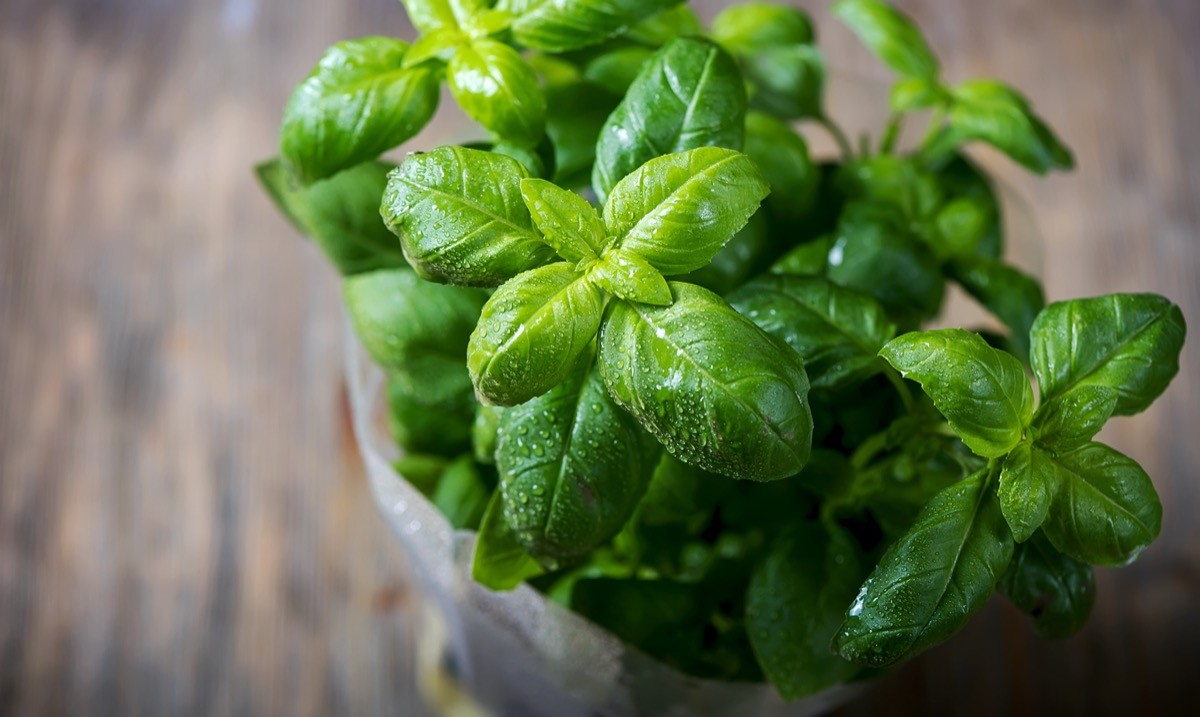
“Snakes cannot stand the smell of basil,” Granger McCollough, the founder and CEO of Elite Patio Direct, previously told Best Life.
Of course, you can plant basil indoors or outdoors, depending on where your snake issue is, or you can use a basil-scented essential oil. According to Lake Norman Pest Control, the scent of basil also repels flies and mosquitoes.
RELATED: 6 Top Signs There Are Snakes in Your Yard.
9
Smoke

Besides the little bit that might seep out of the fireplace, having too much smoke in the air can make it hard to breathe. Turns out, it’s not different for snakes.
“Smoke is another excellent snake-repelling scent, and any strong smell of it will keep snakes away,” says Mecham.
Of course, humans don’t want to breathe in too much smoke, but it can be effective if you’re looking to coax a snake out of a hiding place and back outside.
“Place a smoldering piece of wood or a smoke bomb in areas you’re afraid might be hosting a snake and see if it doesn’t send them packing,” she advises, adding that it can also be helpful for campsites.
10
Lemongrass
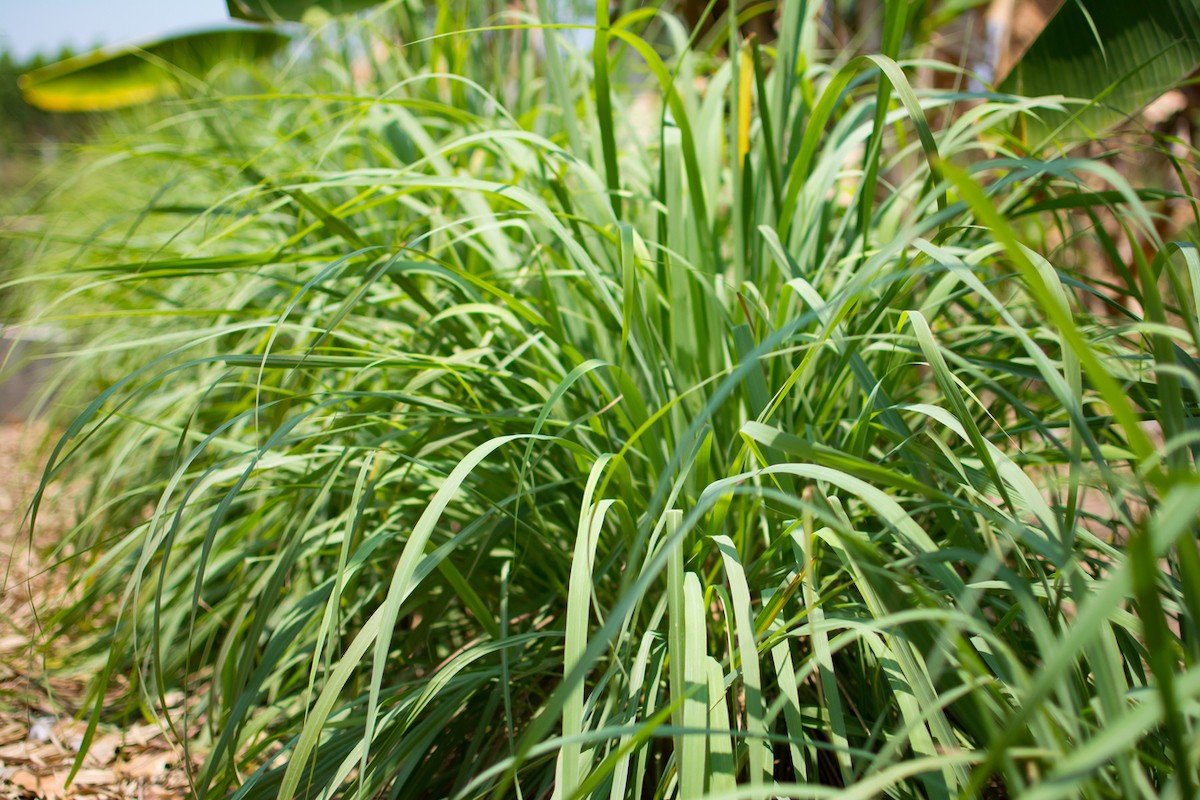
Whether you keep a lemongrass plant outside or use lemongrass oil in your diffuser inside, there’s no denying that snakes hate this smell.
Plus, it’s a turn-off to other unwelcome visitors, too. “Its citronella aroma is often used in insect repellants,” Bryan Clayton, CEO at GreenPal, previously shared with Best Life.